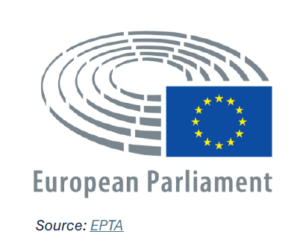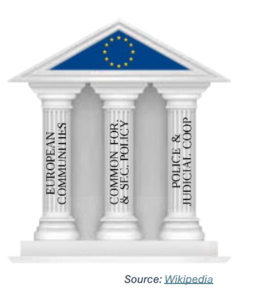Over the past decade, no firm has faced more scrutiny for violating competition laws than Google. The avalanche of cases against the firm—over 100 around the world—is almost unprecedented. In that light, the question facing competition authorities is increasingly not whether Google has broken the law, but rather what to do about it.
Continue reading “Google AdTech – Break Up or Break Out?”Category: Uncategorized
Predictive Justice and the AI Act: the reuse of sensitive data for bias mitigation
European policies and legal instruments are increasingly drawn to a technocentric approach regarding Artificial Intelligence (AI) fairness – that is, they pay a lot of attention to the technical issues of AI, such as ensuring that datasets are balanced and free from errors. With this blog post, I argue that it is not sufficient to focus solely on the technical aspects of fairness without also considering the social, political, and economic systems that shape AI’s development and deployment. Instead, a broader socio-technical approach should be considered. This post is based on my recent publication “Predictive justice in light of the new AI Act proposal”.
Continue reading “Predictive Justice and the AI Act: the reuse of sensitive data for bias mitigation”Ecosystem theories of harm: application and enforcement (by Manu Batra, Paul de Bijl and Timo Klein)
Ecosystems
The 2023 Booking/eTraveli merger prohibition by the European Commission (EC) was the first EC merger prohibition concerning digital platforms. Booking offered primarily a hotel online travel agency (OTA), amongst other smaller offerings in flights and car rentals, while eTraveli offered a flight OTA. The concept of an ‘ecosystem’ that was used in the Commission’s theory of harm was unique. Though the concept of an ecosystem has been used in other cases, also outside of merger control, the term still lacks an accepted universal definition. Also unclear is the extent to which such a theory of harm differs from conventional theories of harm, what the standards for evidence under this theory of harm are, and how such theories of harm would affect enforcement.
In this context, we recently published an article defining ecosystems, and potential theories of harm concerning ecosystems. In this blog post we investigate how these theories might change the enforcement of merger control.
Continue reading “Ecosystem theories of harm: application and enforcement (by Manu Batra, Paul de Bijl and Timo Klein)”100th Blog Post on EU Law Enforcement: pertinent questions that deserve our future research and societal attention. Call for Blog Posts (by Kelly Blount, Zlatina Georgieva and Miroslava Scholten)
Today, our blog celebrates its 100th blog post. Since September 2016, we issue at least one blog post per month, always on the last day of the month. The blog is open to anyone wanting to contribute, also in a different language than English. Our aim is to create a central point for information, research and discussion on the pertinent issues related to the so far understudied theme of the enforcement of EU law. Until now, we have had blog posts, which would announce a new book, idea or project, discuss a recent court judgement or legislative proposal or act, give a comment on a publication or summary of a recent event, to name but a few of our topics. The form of the blog post is thus flexible and inclusive.
This special blog post presents a discussion on some of the pertinent questions that the editing team sees as important in their respective research fields and warrants our further attention and investigation. This post is thus also a call for future blog posts and other initiatives, which could support and enhance the main theme of the blog – ultimately, to aid legislative and enforcement practices (in the EU as well as other jurisdictions) and to promote beneficial policies for society. Ideas for blog posts and full texts could be sent directly to the editors, whose contact details are to be found in the right pane on this website.
But first of all, why blogging?
Edward Elgar Research Handbook on the Enforcement of EU Law
The EU body of law counts more than 100,000 pieces of legislation and some argue that the legislative activity of the EU has been declining. However, are these laws being followed and do they bring the expected results? To answer these questions, it is important to investigate relevant implementation processes.
Enforcement is a process of monitoring compliance with laws, investigating possible violations and responding to the proven violations via corrections and sanctions. Upon an invitation from Edward Elgar publishing, I have organised a research handbook on the enforcement of EU law, which was written by 50 experts from relevant fields. This blog post gives a succinct overview of the main findings of this book, which has aimed to present the state-of-the-art in research and practice and outline directions for future research and policy. The book shows an evolution of the concept of enforcement of EU law and observes interesting trends. Based on a comparative methodology, it argues for an increasing importance of the preventive function of enforcement and shows an insightful variety of approaches that can be taken in this regard. Finally, the book discusses the question of success of enforcement by pinpointing the factors that could promote or hinder it.
Continue reading “Edward Elgar Research Handbook on the Enforcement of EU Law”The evolution of EU portability law and its drawbacks
With the prominent role of digital platforms nowadays, switching has become a habit common to many users. A provider can come out of fashion very easily, as users migrate from one service to another in constant search for the best digital service and following the trend. Also “network effects” contributed to the wide spreading of the phenomenon. Against this backdrop, the concept of “portability” has first been articulated as a user right in Article 20 GDPR. This blogpost will portray the different roles acquired by the concept of “portability” throughout the years and spot its intricate relationship with digital platform law and regulation.
Continue reading “The evolution of EU portability law and its drawbacks”Mitigating Antitrust Risks in Due Diligence between Competitors
In the realm of mergers & acquisitions (“M&A”) transactions, corporations almost always undergo due diligence, wherein the buyer conducts a thorough investigation and evaluation of the target company before entering into a transaction. In the context of due diligence operations, antitrust challenges may arise in specific situations, such as when the involved parties are direct competitors. The purpose of this post is to illustrate the instances when antitrust risks emerge during due diligence concerning M&A operations between competitors and to propose suggestions mitigating these risks.
Continue reading “Mitigating Antitrust Risks in Due Diligence between Competitors”Europol’s Accountability: Tension Between Secrecy and Supervision
By Elisabeth, Furat, Joseph and Matthew
Europol’s Accountability: Tension Between Secrecy and Supervision
This blogpost addresses the tension between effective policing and democratic oversight in the context of Europol’s extensive data collection used for ‘predictive policing’. This practice raises questions about the balance between security and individual privacy rights in the digital age. This blogpost provides an oversight of Europol’s powers and corresponding accountability, with the goal in mind of asking whether the Joint Parliamentary Scrutiny Group’s (JPSG) supervisory powers are sufficient to ensure robust and effective oversight of Europol’s operations. It’s important to note that while Europol’s role involves information collection and sharing, it’s distinct from predictive policing, a specific approach that relies on information to anticipate criminal activity. Predictive policing is not widely used in many European countries, and its relationship with Europol’s functions is complex.
A Brief Introduction to Europol:
Europol was created by the Treaty of Maastricht, which established a “Union-wide system for exchanging information within a European Police Office.” Initially, Europol’s role was limited to coordinating cross-border drug investigations. Despite its limited powers, the agency faced accountability concerns from the start, falling within the Maastricht treaty’s third pillar concerning police and judicial cooperation. Crucially, this domain was insulated from judicial review, meaning the Court of Justice had no means of ensuring Europol’s (admittedly limited) policing activities complied with fundamental rights.
Europol’s role has gradually expanded throughout the years, becoming a full EU agency in 2010. As an agency, Europol is tasked with additional responsibilities such as the collection and analysis of intelligence. However, with increased responsibility came the need for enhanced accountability.
The Treaty of Lisbon, brought an end to the pillar system which had kept Europol ‘at arm’s length’ from the Court’s oversight under Maastricht. For many, Lisbon signaled an end to Europol’s accountability concerns. Article 88 TEU provided the European Parliament with oversight for the first time, and along with it came “increased democratic accountability – at least superficially.” The JPSG is one of the core components of this newfound accountability. The group was established in April 2017 by the EU Speakers Conference, which brings together the national and the European Parliaments. The JPSG, which meets twice a year, is co-chaired by the European Parliament and the country holding the rotating presidency of the Council.
The group’s oversight powers are mostly supervisory. Under Article 51(2) of the Europol Regulation, the JPSG’s purpose is to “politically monitor Europol’s activities.” To facilitate the group’s supervision, Article 51(4) allows the JPSG to request documents from Europol and Article 12 of the Regulation requires Europol’s management board to make the agency’s annual work program available to the JPSG. So, the question is – are these supervisory powers sufficient when Europol oversteps its mandate?
Is Europol headed for ‘1984 reloaded?’
Supervising law enforcement agencies is a complex task. Law enforcement, after all, requires a degree of secrecy, which in turn stands in the way of transparency and supervision. In today’s digital society, this tension between secrecy and supervision is manifested in “predictive policing”, a practice which refers to gathering vast datasets and developing algorithms to identify criminals. Europol is no exception to this tension, as data collection and analysis is one of the core components of Europol’s tasks as the EU’s “principle information hub.” While Europol is permitted to collect personal data, Article 28 of the Europol Regulation requires that this data be relevant and necessary for the purposes for which it is processed.
Europol understands the collection of personal data is a touchy subject. In a 2012 publication from the agency, Europol asked “are we headed for ‘1984’ reloaded?”, referencing George Orwell’s novel which depicts a dystopian society of invasive state surveillance. In an effort to put concerns to rest, Europol reaffirmed its commitment to ensuring “the highest standards of data protection.”
Despite this commitment, “serious concerns” have been raised regarding data mining practices at Europol, which saw Europol retaining data related to huge numbers of individuals for indeterminate periods. The sheer scale of Europol’s data mining saw its dataset of 4 petabytes (equivalent to 2 trillion printed pages) compared to a “black hole” and the scandal compared to the mass surveillance program uncovered by Edward Snowden in the U.S. So where was the JPSG amidst this scandal?
regarding data mining practices at Europol, which saw Europol retaining data related to huge numbers of individuals for indeterminate periods. The sheer scale of Europol’s data mining saw its dataset of 4 petabytes (equivalent to 2 trillion printed pages) compared to a “black hole” and the scandal compared to the mass surveillance program uncovered by Edward Snowden in the U.S. So where was the JPSG amidst this scandal?
What role for the JPSG?
Under Article 51 of the Europol Regulation, the JPSG is responsible for supervising Europol’s activities which impact fundamental rights. Given that the European Data Protection Supervisor (EDPS) found that Europol’s data mining practices have a “potentially severe impact” on data subjects’ fundamental rights, data mining at Europol would seem to fall squarely within Europol’s supervisory powers.
 The problem is the limited extent of the JPSG’s supervisory powers. Europol is only required to report to the JPSG on a yearly basis and has no oversight over the agency’s day-to-day activities. This creates a real gap in the group’s supervisory powers. This gap is demonstrated by the fact that it was Europol itself, not the JPSG, which reported concerns regarding its data handling practices to the EDPS.
The problem is the limited extent of the JPSG’s supervisory powers. Europol is only required to report to the JPSG on a yearly basis and has no oversight over the agency’s day-to-day activities. This creates a real gap in the group’s supervisory powers. This gap is demonstrated by the fact that it was Europol itself, not the JPSG, which reported concerns regarding its data handling practices to the EDPS.
Real tension between secrecy and supervision is also evident with regards to the JPSG’s requests for documents. Different rules apply to requests for sensitive documents, which Europol handles a lot of as a law enforcement agency. This tension came into play when the JPSG requested access to correspondence between Europol and the EDPS relating to Europol’s data collection software, to which Europol provided only a limited reply, indicating only the types of software used.
Moreover, adherence to the Law Enforcement Directive (LED) reinforces accountability by mandating strict data protection standards for law enforcement authorities, including Europol. The EDPS’s oversight ensures Europol’s predictive policing complies with these standards, highlighting the critical need for enhanced supervisory mechanisms to protect personal privacy and uphold fundamental rights in the era of data-driven law enforcement.
The JPSG’s limited supervisory powers have been harshly criticised. Some have even said that the group’s limited role gives the agency a “blank cheque” to self-regulate. What then can be done to improve the JPSG’s supervisory role? One solution could be allowing the JPSG more access to Europol’s management board meetings. As it stands, under Article 14 of the Regulation, the JPSG is only required to be invited to two board meetings per year. If the board addressed the JPSG’s summary conclusions and the group’s representatives participated more actively, it would greatly enhance both transparency and effectiveness as the JPSG would have a better grasp on Europol’s day-to-day activities. Such improvements are essential for the JPSG to execute its oversight responsibilities more effectively.
Do crises affect enforcement of EU Law?
In 2018, EU Commission president Jean-Claude Juncker stated that the EU “had been sleepwalking from one crisis to another without waking up.” These crises have no doubt had a range of detrimental effects on the EU, and I argue that crises make it harder for the Commission to enforce EU law. Why? Crises require resources, including time. Time is a fixed and finite resource, and if the Commission is spending time on a crisis, there is less time for enforcement. However, crises do not inevitably lead to lax enforcement. Other actors, including the European Parliament and EU citizens can help overcome the constraints of time.
Continue reading “Do crises affect enforcement of EU Law?”[REPOST] EPPO – First ruling of the ECJ: a Solomon’s judgement on cross-border investigations
This month, we have the pleasure of re-posting a contribution by Clémence van Muylder, Senior Associate at Loyens&Loeff, Brussels. Have a pleasant read!
In its Grand Chamber judgment of 21 December 2023, the Court of Justice of the European Union rendered its very first decision on the functioning of the European Public Prosecutor’s Office (EPPO). The decision provides valuable guidance on the conditions for cross-border acquisition of evidence by the EPPO.
Continue reading “[REPOST] EPPO – First ruling of the ECJ: a Solomon’s judgement on cross-border investigations”

